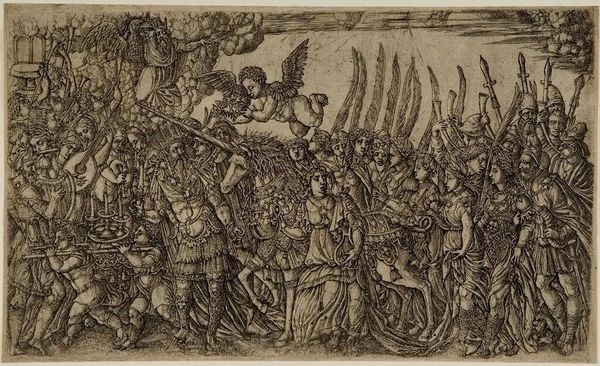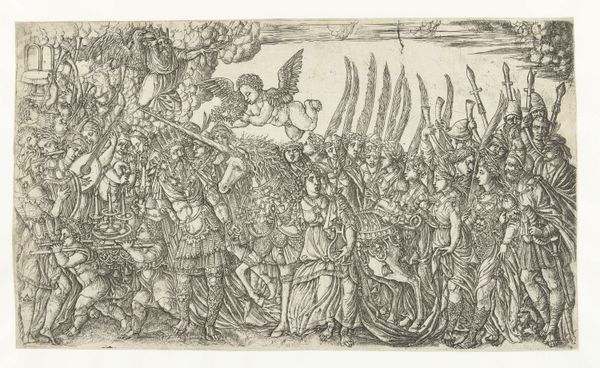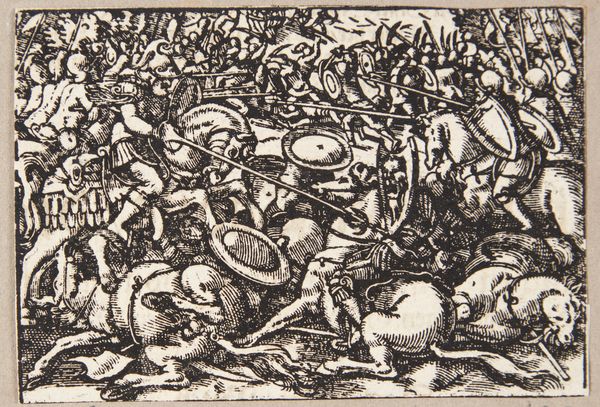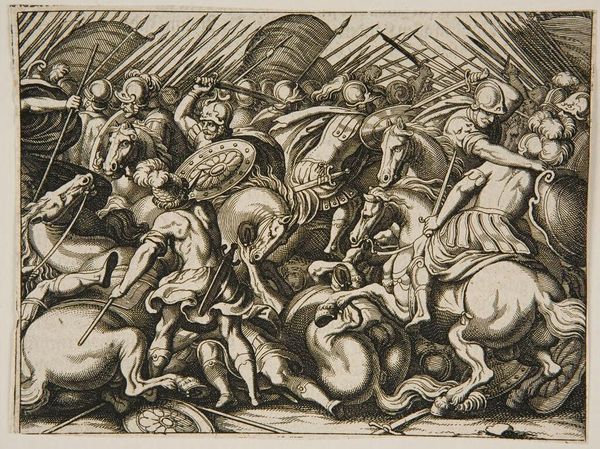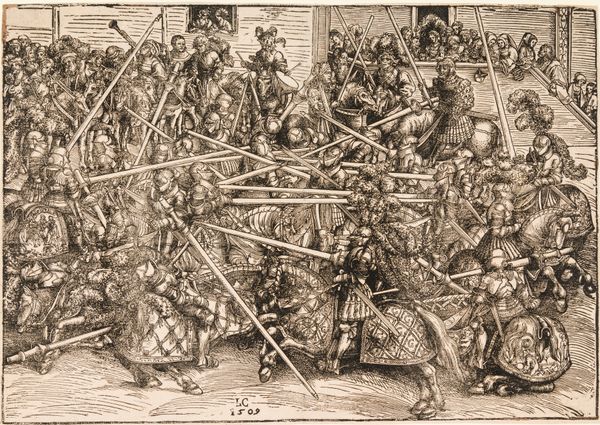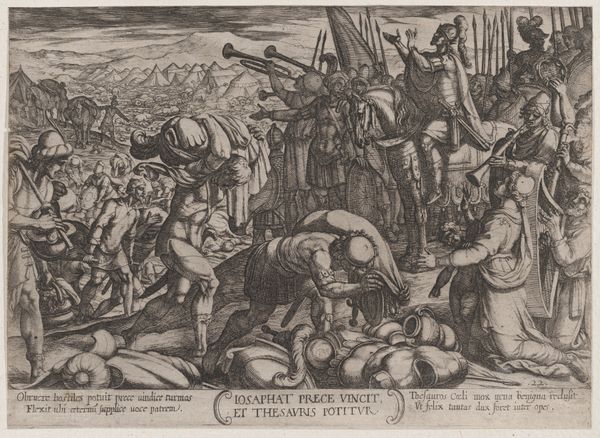
drawing, print, etching, paper
#
drawing
#
allegory
#
narrative-art
# print
#
etching
#
figuration
#
paper
#
11_renaissance
#
ink drawing experimentation
#
northern-renaissance
Dimensions: 232 × 386 mm
Copyright: Public Domain
Editor: This is Jean Duvet's "Triumph of the Unicorn," an etching on paper created between 1540 and 1550. It's incredibly dense, almost overwhelming with figures and detail. It gives off this very crowded, processional kind of feel. How do you interpret this work, especially in the context of its time? Curator: The density itself is a powerful statement. It speaks to the societal pressures and the weight of expectations placed upon individuals, especially concerning morality and virtue, during the Renaissance. Notice how the unicorn, a symbol often associated with purity and grace, is almost engulfed by the crowd. What does that suggest to you about how Duvet views these concepts? Editor: That maybe the "triumph" is actually a kind of suppression? That the purity the unicorn represents is being suffocated by societal norms and expectations? Curator: Exactly. Consider the context: the Reformation was challenging established religious authority, and there was a great deal of social upheaval. The figures surrounding the unicorn – are they celebrating it, or are they controlling it? What do you see in their faces, in their gestures? Editor: I see a mix of awe and almost…aggression. It's not a uniformly joyful procession. Some seem to be guarding or containing the unicorn, rather than celebrating its inherent qualities. Curator: Precisely. This speaks to a critical view of institutional power and the way supposedly virtuous concepts can be co-opted for control. Duvet challenges the viewer to consider whether this is truly a triumph of good, or the oppressive force of societal expectations. What are your thoughts now about Duvet's potential socio-political position based on his technique in the image? Editor: It feels more like Duvet critiques systems of power in play than praises any inherent virtuous ideas in abstract. Thinking about it from the point of view of resistance adds a new layer to this Renaissance art! Curator: It certainly complicates how we consider supposed societal expectations of triumph. Thank you.
Comments
No comments
Be the first to comment and join the conversation on the ultimate creative platform.
